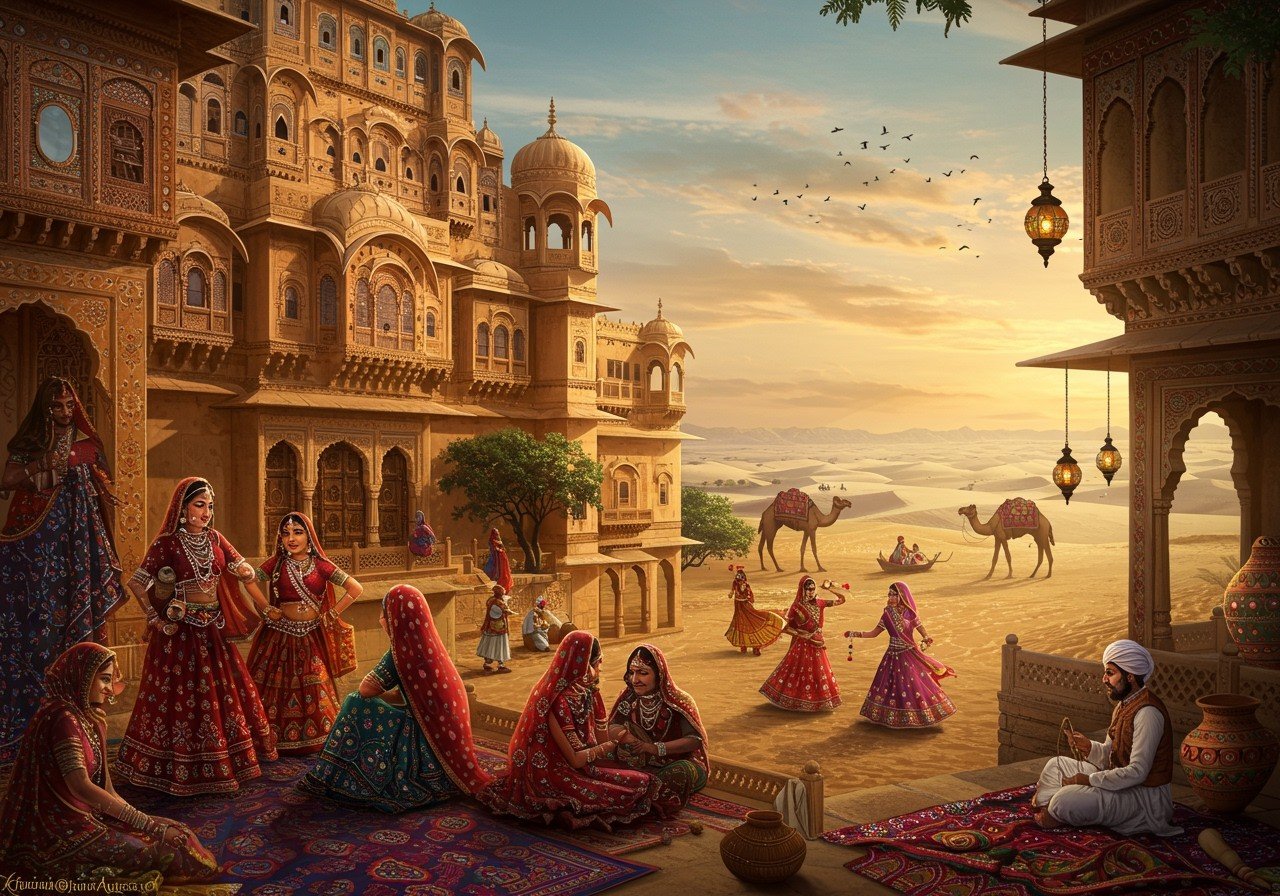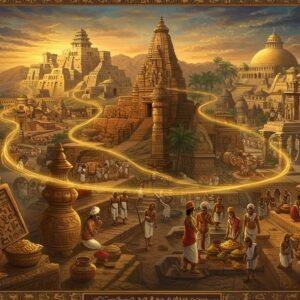
Kutch, a region in Gujarat, is a treasure trove of history and culture. This journey reveals the fascinating past of Kutch, from ancient times to the modern era. Let’s explore the unique aspects that define this vibrant region.
Ancient History of Kutch
Early Beginnings and Trade Routes
The history of Kutch dates back to the Indus Valley Civilization. Archaeologists have discovered ancient settlements and trade routes, providing valuable insights into the region’s early history and culture. Dholavira, one of the largest Harappan sites in India, showcases advanced urban planning and water management systems from ancient times, indicating its role as a hub of trade and culture.
Influence of Dynasties
Kutch’s development was influenced by various dynasties like the Mauryas and the Guptas. The region played a crucial role in early maritime trade, connecting with other ancient civilizations like those mentioned in Greek writings during Alexander’s era.
Medieval Era (1147-1819)
Local Dynasties and Capitals
During the medieval period, which in Kutch’s history corresponds to its period as a kingdom from 1147 to 1819, local dynasties such as the Jadejas rose to power. Bhuj became the capital, and magnificent forts and palaces were built, reflecting the architectural expertise of that time. This era saw a flourishing of arts and culture under local rulers.
Foreign Invasions and Cultural Flourishing
Foreign invasions, including those by the Mughals, shaped Kutch’s political landscape. Despite these challenges, local rulers promoted arts, culture, and architecture, giving Kutch a unique identity. The Battle of Bhuj is a significant historical event from this period.
Colonial Influence (Post-1819)
Administrative and Economic Changes
After 1819, Kutch became a princely state under British rule until India’s independence in 1947. British colonial rule brought significant changes to Kutch. Ports and trade routes were established, integrating Kutch into British India’s trade network. This period saw administrative and economic transformations.
Social and Cultural Impact
Colonial rule introduced Western education and legal systems, impacting Kutch’s social fabric. Local leaders and resistance movements played key roles in fighting colonial oppression.
Modern Era and Post-Independence (1947-Present)
Integration into Gujarat
After India’s independence in 1947, Kutch became part of Gujarat. This integration led to administrative changes that shaped the region’s governance.
Earthquake and Rebuilding Efforts
The 2001 earthquake profoundly impacted Kutch. The local population’s resilience was evident in the rebuilding efforts. Modern advancements in infrastructure, tourism, and industry continue to shape contemporary Kutch.
Cultural Heritage
Music, Dance, and Crafts
Kutch is famous for its vibrant folk music, dance, and crafts. Festivals like Rann Utsav celebrate local culture and attract visitors from around the world. These traditions reflect the rich cultural tapestry of the region.
Unique Architecture
Kutch boasts unique architectural styles, including traditional bhungas and ornate temples. These structures reflect the region’s rich cultural heritage.
Traditional Mats and Textiles: A Cultural Heritage
Poojn.in brings you closer to Kutch’s rich textile heritage through our authentic collection of traditional mats and floor coverings. In Kutch, these traditional mats are known as Gongadi or Gongali, representing centuries of local craftsmanship and cultural significance.
At Poojn.in, we offer a selection of high-quality traditional mats that include:
- Gongadi mats from Kutch region: Experience the artistry of Kutch with these unique and intricately designed mats, perfect for adding a touch of cultural heritage to your home.
- Durries from North India: Explore the vibrant colors and patterns of North Indian durries, ideal for adding warmth and traditional charm to any space.
- Traditional Phad mats from Gujarat: Discover the storytelling tradition of Phad paintings through these unique mats, showcasing intricate artwork and cultural narratives.
- Handwoven cotton and wool mats: Embrace the comfort and quality of handwoven mats made from natural materials, perfect for everyday use and adding a touch of elegance to your home.
These traditional floor coverings are essential for various religious ceremonies and daily use. Each piece available at Poojn.in is carefully sourced to maintain authenticity and quality, making them perfect for both ritual purposes and home decor. We offer doorstep delivery across India with secure packaging.
Conclusion
Kutch’s history is a rich tapestry, from the Indus Valley Civilization to its time as a kingdom (1147-1819), then a princely state under British rule, and finally its integration into modern India. The region’s resilience, evident in the rebuilding after the 2001 earthquake, is inspiring. Kutch’s unique culture, traditions, and historical landmarks make it a captivating destination.


